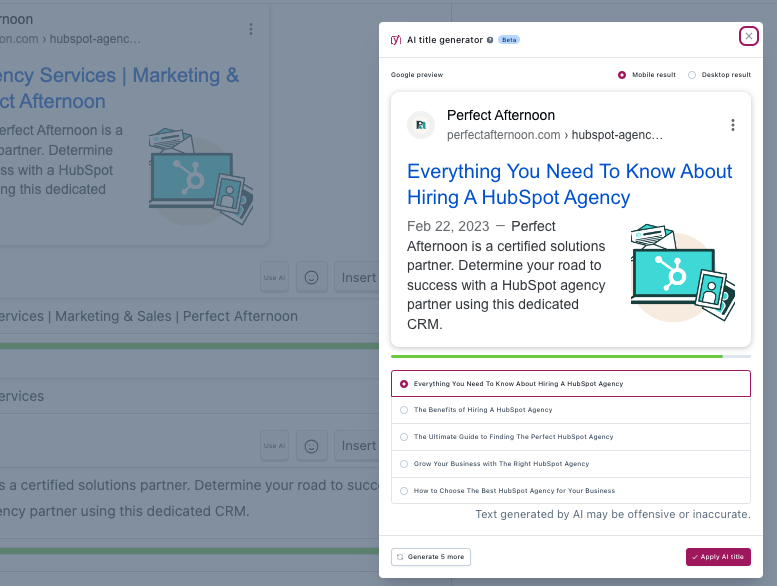How Yoast’s New AI For SEO can be helpful for optimization
SEO is a cat-and-mouse game plagued with overoptimization and can be very, very competitive if you are just baseline. For those looking for another advantage, Yoast’s new update in v. 21.0 includes useful new tools for those running low on elbow grease for page optimization.
Yoast SEO is a widely used WordPress plugin designed to help website owners optimize their sites for search engines. Over the years, Yoast has introduced several updates to ensure its users stay in line with the latest SEO best practices. Now, given the trend towards AI in digital platforms and tools, Yoast is leveraging artificial intelligence to further enhance its functionalities.
The integration of AI into SEO tools like Yoast has significant advantages. AI can provide deeper insights into search patterns, make content recommendations based on real-time data, and predict search engine algorithm changes. Furthermore, using machine learning, SEO tools can better understand user intent, optimize content recommendations, and ensure higher content relevancy.
Using AI to help suggest SEO for titles & meta descriptions can be helpful
As the title suggests, “it can be helpful,” I’m not sure it will be the be-all to end-all. You still need to have a baseline understanding of an SEO strategy for a new or revamped website. Then comes the tactics as you map competitive long-tail and short, broad terms to content for a specific web page. This new tool can help influence and spark creativity to help you in keyword-competitive slumps.

As you can see, the UX is pretty nifty. The auto-generation from Yoast’s AI provides a few suggestions for page title tags and meta description tags. I’ve always been a fan of the auto-preview for desktop and mobile because I think SEO has too many social-psychological aspects. The clicks from organic and the bounce rate have always been signals to focus on. High bounce rates can come from misleading or not “honed-in” titles and descriptions. We all want low bounce rates, and Google likes those, too.
Is AI for SEO reliable?
Hmm, this is a good question. I think this is a two-part answer, in my opinion.
#1 – You are going to need to test this out. Does every fertilizer you throw on the lawn work? I suppose you need to water, or water less, and see how the climate, soil, and other factors come into play. Only with time will you know how “good” it worked. You should see some results quickly with a fast website and a good site structure. If they are good or not, that’ll be for you to determine.
#2 – AI results will provide helpful ideas and feedback. Yoast’s AI engine (Bertha! I love her name) is collecting data and sharing it with others (likely). If it’s not good and doesn’t evolve, then it will be forgotten by many quickly, so the data it displays will likely be relevant and newer. I’d take what they suggest to heart. Consider if it fits into the page you describe and if the previous edit received the intended result. More clicks with less bounce? What is your goal?
SEO has many factors which can be a part of your toolbox. I strongly suggest you consider the data alongside your overall strategy. If you don’t have a good SEO strategy, talk to a reputable agency like Perfect Afternoon for help.
Remember: If you fail to plan, you can plan on failing.
Image source: Andy Kelly on Unsplash
